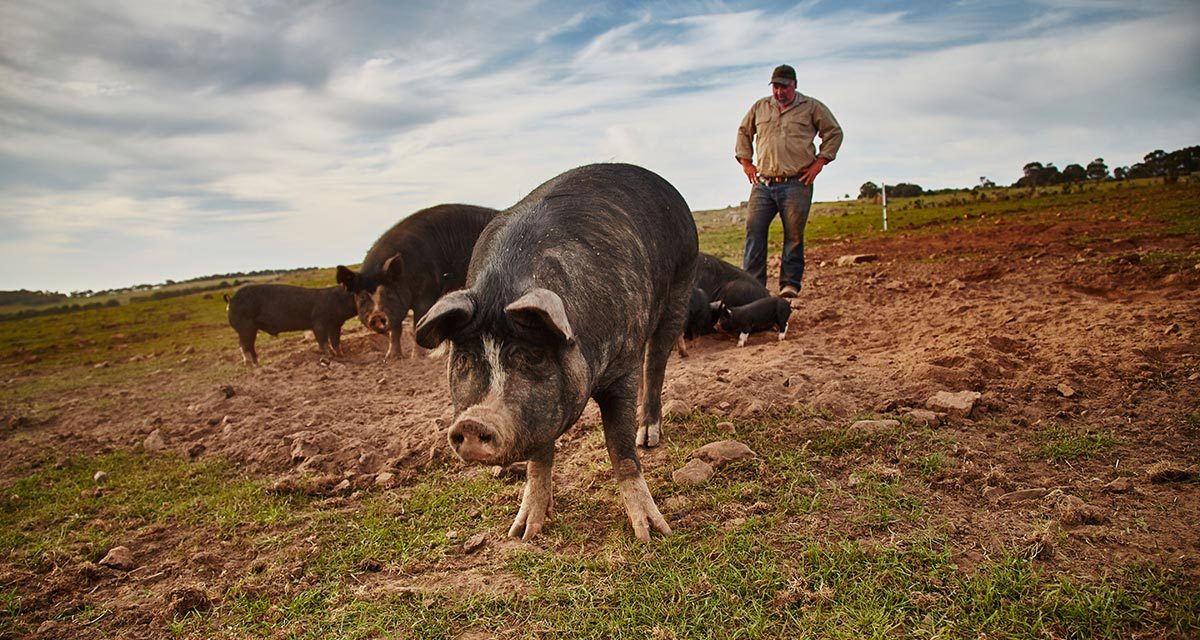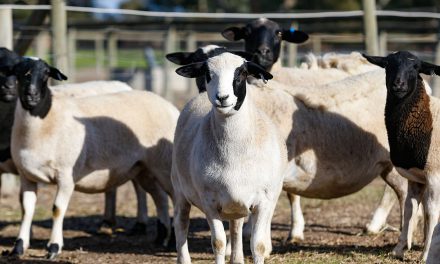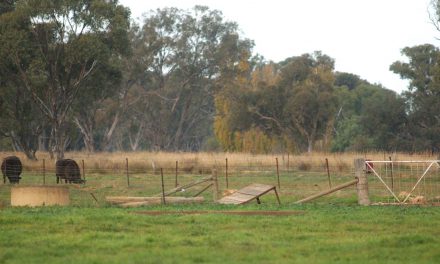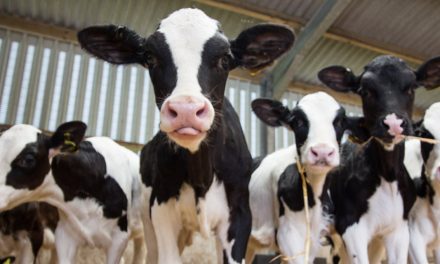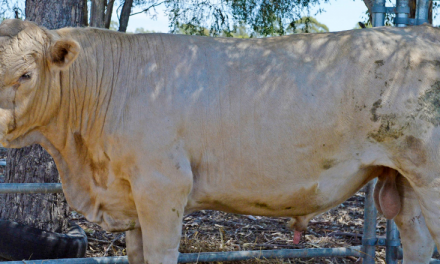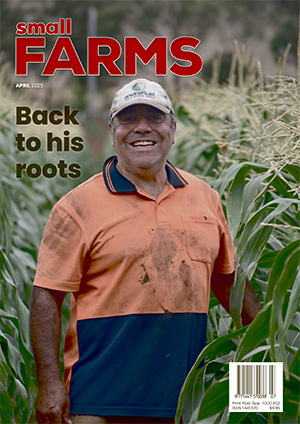Jason and Leanne Stephenson and their children Axel and Shayna began their rural pursuit lifestyle running a few sheep on a small block at Port Lincoln in South Australia.
Jason was a building apprentice in Adelaide in the early 1990s and ran his own building business prior to moving to Port Lincoln in 2002 to continue building and enjoy a family rural lifestyle.
After six years with sheep the operation took on heritage Berkshire pigs. “We like the Berkshire pork flavour which is enhanced by intramuscular fat,” Jason says.
There is now a full-blown career change underway into pig breeding and production through to wholesale and retail sales of fresh pork and smallgoods.
The Stephensons’ Boston Bay Smallgoods Company is based around a free-range heritage breed pig farm located on the pristine remote and rugged Eyre Peninsula.
They produce free-range Berkshire pork and bespoke Italian-style charcuterie.
Charcuterie is a branch of cooking devoted to prepared meat products such as bacon, ham, sausage, terrine, pate, and confit made primarily from pork.
It was used to preserve meat before the advent of refrigeration and is used today for the flavours derived from the preservation process.
The pigs are run on a 642ha property at Rudall, 30km inland from Port Neil, 130km north of Port Lincoln and 535km to Adelaide.
The Stephensons live on a small block just out of Port Lincoln and operate an organic certified butcher shop at North Shields, 11km north of Port Lincoln.
They are passionate about sustainable and ethical farming practices with enhanced pork production best practices using extensive natural bush grazing systems.
“Our pigs have an amazing stress-free quality of life not seen anywhere in the world,” Jason says.
“We are flattered and encouraged by the amazing response from chefs and other visitors to our operation and the quality of our pork.”
Their fledgling two-year-old pig business already has products on the menu at some of South Australia’s most influential restaurants.
“My approach is to breed best quality pig, feed them a mostly home-grown grain-based diet and provide them with a free-range wild-grazing status,” Jason says.
Boston Bay intends to add retail pork products to its existing smallgoods range and has just secured a first export deal to supply premium pork to Singaporean restaurants and high-end supermarkets.
The Boston Bay 100 per cent free-range Berkshire fresh pork products include: premium mince, skin, hocks and trotters, fillets, rind-on loin, ribs, whole pigs’ heads and shoulder.
The Stephensons’ King Henry free-range heritage breeds smallgoods include: bone-in, champagne and boneless ham, porchetta roll, gourmet speck, smoked bones and hocks, garlic, cheese and chilli kranksy, and chorizo.
Their pig property enjoys a traditional coastal South Australian climate with warm summers and cool afternoon sea breezes.
The property has fingers of scrub land, with open grazing for pigs to roam and forage, use drinkers and wallows for hydration and mud baths for sun protection.
There are 120 sows bred in large group of 35 sows and four to five full-time boars turning off 1200 slaughter pigs a year.
Piglets are weaned at a healthy weight range, rather than an age, to ensure they survive and thrive.
The pig feed regime includes combinations of wheat, barley, lupins and peas with native pasture and grass and a premix bag of vitamins and minerals to ensure optimum growth and health.
The Berkshire genetics are maintained and developed at separate gene pools in South Australia and Victoria – so there is no introduced stock from outside breeders used in the operation.
Pig handling equipment is basic with small feeding yards where pigs enter for a feed, are identified for slaughter and drafted into a trailer for transport to the Port Lincoln meat works.
Leanne says pigs are highly intelligent, social animals with an established herd hierarchy and a fondness for foraging, wallowing and raising their young.
The Stephenson pigs are slaughtered in Port Lincoln sold fresh through their butcher shop and sent to Adelaide to be processed into their Boston Bay Smallgoods Company range or sold direct to food outlets.
Jason says selected cuts are used for different smallgoods, scotches for cappacolo, legs for jamon, bellies for pancetta.
“The pork is salted and spiced according to authentic Italian recipes by a father and son team who have perfected this craft for over 50 years,” Jason says.
Their fresh pork and smallgoods are sold to restaurant trade, cafes, retailers plus growing sales through their office and farm shop.
“We’re looking to our branded packaged products through niche market supermarket chains and other reputable outlets including Asian high-end restaurants.
“Free-range Australian meat is highly prized and sought after in Asia,” Jason says.
Leanne says breeding pigs isn’t for everybody but “we love to see the sows with their new babies teaching them how to forage, showing them where the water is, and keeping them in line when they start roughhousing each other.
“Being inquisitive creatures, they escape into neighboring paddocks searching for, perhaps other pigs, different foraging lands.
“They can be rough with the fences, pushing them over as they can grow to be quite heavy,” she says.
The Stephensons focus on the physical health of their happy and thriving pigs, ensuring their livestock have access to clean water and enough hot shelter and breeding boxes in the paddocks.
Jason suggest newcomers to pig production need to first find consistent and reliable buyers for their pigs and a nearby meat works if they intend to sell and value-add their pork products.
“Pigs are a 365-day per year job, there are no days off; Christmas Day is interrupted and holidays are not taken,” he says.
Essential equipment required to run a few pigs includes heavy-duty fencing, automatic waterers, shelters for protection from the elements and facilities where the pigs can have mud baths.
“Above all you need a resilient outlook on farm life – taking the good with the bad,” Jason says.
There is no better testimonial to the qualities of pigs than that from the English statesman Sir Winston Churchill who said, “I like pigs – dogs look up to you, cats look down on you and pigs treat you as equals.”
Berkshire pigs at a glance
One of the pig breeds that farmers are finding to work well for consumers is the Berkshire. This pig is hardy, has good mothering capabilities and performs very well outdoors, especially when grazing on pasture.
The Berkshire meat is darker than commercial pork and far more flavourful than the pork found in your grocery-store freezer.
The breed is black with white points (legs, face and tail) and pink skin with strong deep sides and back, short neck, blocky legs, strong feet, short snout, dished face and erect ears.
They are medium to large pigs around 270kg at maturity with a friendly and curious nature, good mothering ability, high milk production and hardy outdoor performance.
The Berkshire is one of the oldest identifiable breeds being documented in the English shire of Berks more than 350 years ago.
Berkshire is the top choice for pork in Japan where dark meat is seen as healthy and healing and consumers appreciate the marbled, juicy, flavoursome and well-textured pork.
United States research has Berkshires number 1 in 19 of 24 tests of sensory qualities/eating characteristics.
For more information, contact
Jason and Leanne Stephenson, Boston Bay Smallgoods, Port Lincoln, South Australia. Phone (08) 8682-2120 or mobile 0408-415-195
Website www.bostonbaysmallgoods.com.au

